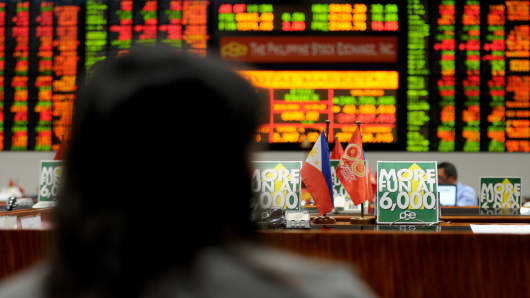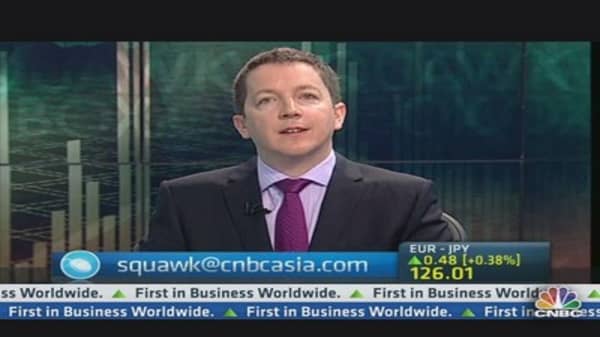Emerging markets remain vulnerable after the ugly sell-off last week, as concerns about an unwinding of the U.S. Federal Reserve's monetary stimulus program keep investors on edge, analysts say.
The MSCI Emerging Markets Index, the benchmark for emerging market stocks, tumbled to its lowest level since September last week, while currencies such as the South African rand and Indonesia rupiah took a pounding.
And, in a sign of heightened concern about a sharp outflow of funds from emerging markets, Brazil, Indonesia and India have all stepped up measures to either stem the outflows or shore up battered currencies.
(Read More: Asia's Fight to Stem Fund Outflows Just Starting)
"We think fund outflows have further to run, maybe for another month or so before markets stabilize," Will Oswald, global head of fixed income, currencies and commodities at Standard Chartered Bank, told CNBC Asia's "Squawk Box" on Monday.





